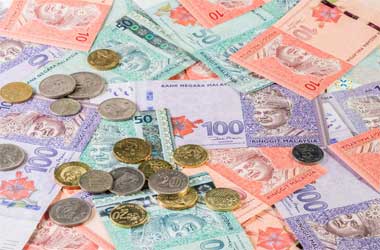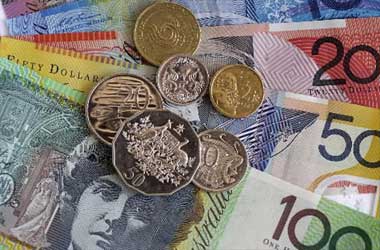 The worsening ties between the EU and the UK will be the spotlight in the days ahead, amid rumors of a likely trade war between both parties if a deal on enforcing the Northern Ireland protocol cannot be reached.
The worsening ties between the EU and the UK will be the spotlight in the days ahead, amid rumors of a likely trade war between both parties if a deal on enforcing the Northern Ireland protocol cannot be reached.
After months of fretting about Brexit and its influence on the Pound, the year 2021 has been devoid of stories regarding the United Kingdom’s withdrawal from the European Union.
Nevertheless, this appears to be changing, with the EU threatening to impose tariffs on UK exports if the UK fails to adequately execute the conditions of the Northern Ireland treaty by the end of the month. “The pound is trailing other major currencies.”
Officials from the United Kingdom and the European Union will convene on Wednesday to attempt to address an intensifying dispute over Northern Ireland’s trade regulations. According to Elias Haddad, Senior Currency Strategist at CBA, “US President Joe Biden will participate in the conversation.”
According to the Telegraph, Prime Minister Boris Johnson is weighing “all alternatives” in the midst of an “unfolding trade war” after Brussels warned to slap sanctions on British exports to Northern Ireland. Maybe creative reporting, but the problem is sure to catch the attention of foreign exchange markets, and historical experience has shown that when Brexit-related fears build, the British Pound sees a selloff.
“Relationships have continued to deteriorate since Brexit,” says George Vessey, a UK Strategist with Western Union, who adds that the Pound exchange rate may now be vulnerable as a result of the situation. In what looks to be an extremely confused market, the Pound-to-Euro exchange rate fell by a third of a percent in the past few days to trade at 1.1598.
In the meantime, the Pound-to-Dollar exchange rate is hovering at 1.4137. “There’s no doubt that the language from Brussels will weigh on Sterling sentiment in the near term,” says Matt Nobes, UK Deputy Head of Trading at Global Reach Group. “However, it’s not obvious if that’s enough to move Sterling out of its prolonged range trading conundrum.” “The genuine fear for us is that friction will develop into tariff increases, or even worse, that the EU would interfere to prohibit the UK from accessing the single market for financial products. Any of these will be considered as a serious hazard for the UK economy, and a wide sell-off in the Pound would be expected, Nobles states.
The EU will provide exemptions on resolving the Northern Ireland crisis on Wednesday, but will caution UK Brexit Minister David Frost that “patience is running out” in Brussels due to the administration’s “aggressive” approach. Per a story in The Times, EU senior negotiator Maros Sefcovic would remind Frost that in exchange for the EU’s considerable compromises, the government must follow the protocol “in good conscience.”
The EU is prepared to apply trade measures, including reciprocal tariff barriers, if there is no resolution by next month and the administration does not execute the guidelines, according to the article. The introduction of tariff barriers might have a substantial negative impact on the pound, which might come under pressure as an outcome of this issue as we step into autumn. The United Kingdom has so far failed to fully execute the Northern Ireland agreement, which is part of the UK’s EU Withdrawal Agreement, claiming that it essentially prohibits specific items from being traded between Northern Ireland and the remaining part of the UK.
Anxiety over the topic has risen in previous weeks among Northern Ireland’s unionist population, whose politicians want the agreement repealed entirely. Edwin Poots, the current DUP leader, has accused the EU of exploiting Northern Ireland as a “puppet” in the Brexit negotiations. He also blamed the EU of causing “significant harm” to the peace deal, warning that resentment over the Northern Ireland protocol might lead to unrest this summer. When it comes to the specifics, UK officials have been discussing prolonging the notice period for chilled meats, which is set to expire this month, triggering a “warning” from the EU that taxes and quotas will be imposed in retaliation.
According to Downing Street officials, the EU has “no case altogether” to prohibit sausage as well as other chilled meat exports between the UK and Northern Ireland, claiming it would be “inconsistent to the protocol’s goals and the people of Northern Ireland.” “An immediate solution is required,” remarked the Prime Minister’s spokesperson. “In difficult conditions, the rule was forged in a mood of cooperation. We didn’t anticipate the EU to take such a rigorous attitude to it because it wasn’t a finalized answer.”
“We are working extremely hard to find a mutually acceptable solution to these problems. However, the Prime Minister has always stated that we would explore all alternatives in order to fulfill our obligation to maintain stability and prosperity in Northern Ireland.” In answer to a query on whether the UK will react by imposing tariffs on EU goods, the spokesperson added. In the meantime, news about the Covid-19 epidemic in the UK is hurting the Pound, with news reports claiming that a postponement of two weeks to a month in the last step of easing covid prohibitions may be published soon. The action would come as demand for Covid-19 cases continues to soar, with caseloads tripling every 10 days.
“Despite the good UK economic forecast, sterling remains frozen at the $1.41 and €1.16 levels vs the US dollar and euro, as economic restraints continue to be lifted. However, uncertainties over the June restart are restricting GBP gains” Vessey agrees. The delay appears to have been largely anticipated by markets, so a significant drop in the value of the pound is doubtful if Prime Minister Boris Johnson ultimately announces one.




